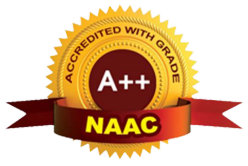IGNOU hosts workshop on policy interventions in livestock development
28 April, 2011
The Indira Gandhi National Open University’s (IGNOUs) School of Extension and Development Studies (SOEDS) along with the Rajiv Gandhi College of Veterinary and Animal Sciences (RAGACOVAS) and International Livestock Research Institute (ILRI) embarked upon a multi-stakeholder dialogue on ‘Reclaiming Research in Livestock Development through Policy Interventions’
providing a platform for all livestock research and development of professionals having a sound evidence on Technologies, Knowledge and Practices (TKPs) to interact and identify appropriate policy support required.
The two day national workshop concluded at the IGNOU head quarters with the technical and valedictory sessions. The workshop allowed a critical analysis of the TKP packages generated by research to showcase the role of policy in their uptake. “The idea is neither to discuss the technologies nor to highlight the constraints, but to focus only on favorable policy interventions that will enhance their uptake,” said Dr. Ranjitha Pusukar, scientist and team leader, ILRI, Addis Ababa, Ethiopia during the workshop.
The professionals engaged in livestock research and development in India were invited to submit their research papers, 70 papers were received of which best 12 have been shortlisted and published under the name of ’12 Potential Innovations in Livestock Development’ launched by the chief guest Dr. K. D. Kokate, Deputy Director General (Agricultural Extension), Indian Council of Agricultural Research (ICAR).
Talking about the launched research book, the Vice Chancellor of the university, Prof. V.N. Rajasekharan Pillai in his presidential address said that, “There are 12 papers presented under the theme of Information and Communication Technologies (ICTs), veterinary education, marketing, animal production and livelihood sustainability. Disseminating knowledge to the ground level is a very important step towards achieving the desired goal. It is not just about reaching the practitioners of knowledge, but to those who will ultimately use it (the farmers). There are gaps in the information flow between research and extension; extension and livestock keepers and also the policy and research communities. It is imperative that the livestock development professionals devise suitable mechanisms to bridge these gaps to help the livestock keepers realize the potentiality of the research output.”
“The publication is a result of this initiative, bringing together innovations in livestock development with direct implications for policy, highlighting some important themes and intending to stimulate discussion among researchers and policy makers,” he added.
“The livestock contributes to five per cent of the GDP and is proposed to be six per cent in the 12th five year plan. There has been a manifold increase from 17 million tonnes to 110 million tonnes in milk in 2008-09 and 5.6 million tonnes from 4 million tonnes in wheat. There has been a record production last year of 218 million tones. Breeding policy should be analysed and logistic arrangement should be made available as they play a very pivotal role in livestock management. Today, less than five per cent of the area in the country is engaged in fodder production which can be increased with the crop combinations of leguminous and non leguminous ones. There is a strong need
of disease diagnostic support in rural areas, development of combination vaccines, effective drug delivery through nano-technology and post harvest management to reduce losses. Presently, there are 589 Krishi Gyan Kendras in the country which have a key role in propagating the whole process,” said Dr. Kokate.
He further added that, “The challenge for today is to retain the youth in agriculture and livestock sector for which those kind of modules need to be produced. Farmers must be involved with the research institutes, they should get the benefit of the scientist and vice-versa.”
Prof. S.V.N Rao, RAGACOVAS, Puducherry gave an overview of the workshop and outlined the causes as to why we are not able to move forward and who and how to do it. He attributed the reason to lack of coordination between animal husbandry and veterinary science colleges. “There is no inter-dependence between the two. It has been realised but nothing has been done. Policies at planning level have been formulated in some cases while in some they have not been taken forward. There should be research and policy intervention. People should interact and discuss whether these policies can be pushed up?” he added.
Having realised various challenges in technology production in order to have a much wider and deeper impact,” Dr. Puskur said, “We have to be accountable and make sure that these technologies developed by us reach the targeted group of people. We need people to understand the ramifications and what kind of policies will help meet the demand of the targeted groups.Innovation does not just means new ideas, but ideas that have been put together into action leading to fulfillment of socio economic needs. Have we shown enough impact on what we are generating? As researchers, we are still grappling with these interventions. How to communicate the results to them? That means we need investment in these strategies.”



